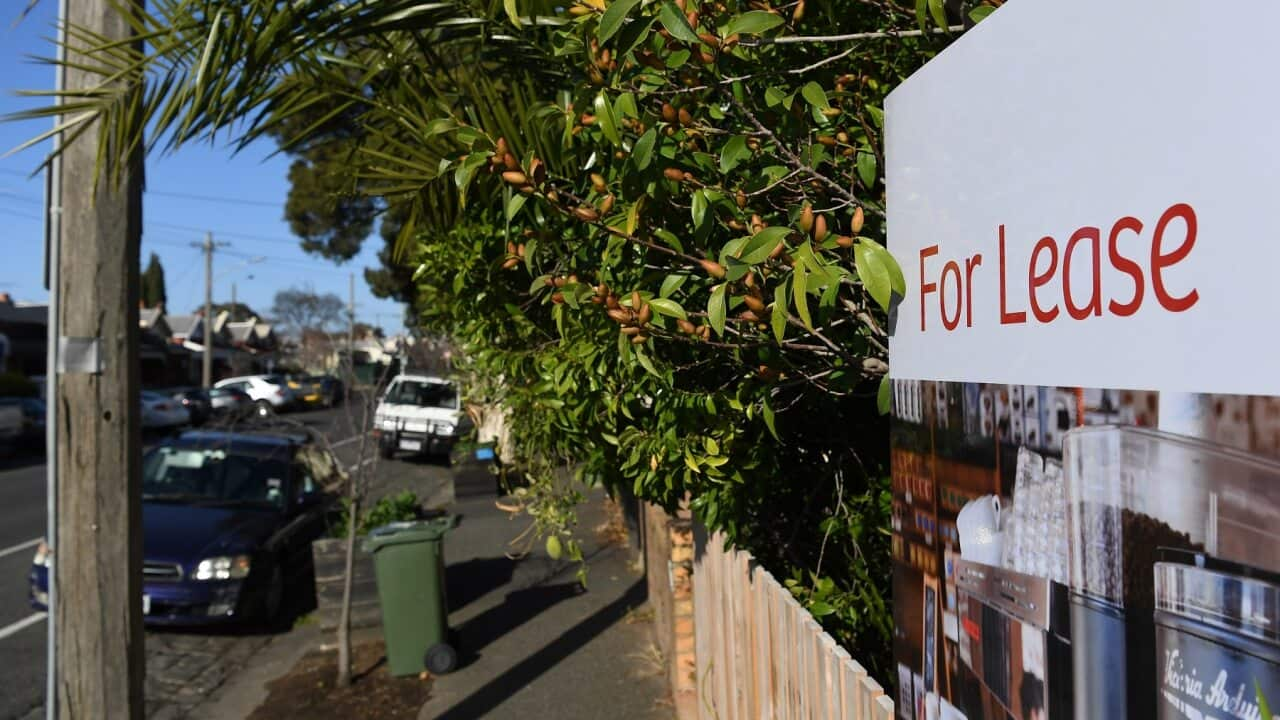Key Points
- PropTrack has released its latest rental data, showing capital city rents have hit another high.
- Median advertised rental prices rose 2 per cent nationally over the June quarter to $520 per week.
- Rental unit prices in Sydney and Melbourne have gone up by 19 and 17.5 per cent respectively over the past year.
As mortgage holders , Australia's renters are also being hit with rising housing costs.
According to new data from property analytics company PropTrack, median advertised rental prices rose 2 per cent nationally over the June quarter to $520 per week.
Rents have increased 11.8 per cent since 22 June last year, when the median national price was $465, PropTrack says.
And as prices continue to rise and demand outstrips supply, it may be some time before renters experience any relief.
How much have rental prices increased in capital cities?
PropTrack found rents across the combined capital cities continued to rise, up 5.8 per cent in the June quarter to $550 per week.
Over the past 12 months, there's been a 17 per cent increase.
Prices for rental units in Sydney and Melbourne have increased the most, going up by 19 and 17.5 per cent respectively over the past year.

The price of rental houses has increased in in all of Australia's capital cities. Source: SBS News
In the June quarter, Canberra and Sydney were the most expensive capital cities to rent in, with the median price at $620 per week, followed by Darwin at $570 per week.
The biggest percentage increases were in Melbourne and Perth, at 4.3 per cent and 4 per cent respectively.
How much have rental prices increased in regional Australia?
In regional Australia, rental prices appear to be moderating, with overall prices flat in regional areas for the June quarter.
This was the slowest pace of annual growth since early 2021, but rents are still higher than a year ago.
The median rental price in regional areas has increased year on year by 8.7 per cent for houses and 6.5 per cent for units.
The median price for rentals was $500 for houses, $426 for units, and $480 for all dwellings.
Queensland has the most expensive regional rent, at $515 per week, followed by NSW and Western Australia at $500.
What's causing rising rental prices?
PropTrack economist Angus Moore said supply and demand is one of the key factors in Australia's rental crisis.
Moore said Australia's rental vacancy rate - which measures the number of currently available rentals - is sitting at around 1.5 per cent.
"That means for any given rental, there is a lot of renters looking, it's very competitive, leasing very quickly, and rents are rising as a result," he said.

Median rental prices in Regional Australia have risen by 8.7 per cent in the year to June 2023. Source: SBS News
Rising interest rates are also playing a part, Moore said, with more people unable to buy houses and having to remain in the rental market.
"We are seeing fewer first home buyers move out of being renters into home ownership," he said.
"With interest rates rising as quickly as they have, borrowing capacities have fallen by as much as 30 per cent, so that wiped out a bunch of households that otherwise might have been first home buyers and kept them in the rental market."
When will Australian rental prices ease?
In the short term, Moore does not expect much relief for renters, particularly those in capital cities.
"We are probably going to continue seeing pressures on rents, particularly in Sydney and Melbourne," he said.
"In some of the other cities, we are starting to see some signs that rents are starting to slow down ... so there may be a silver lining there."

Median advertised rents rose to $520 per week nationally in the June quarter, according to new data. Source: AAP / Jono Searle
"We are starting to see a bit more investor activity, we are starting to see more rental properties come into the market and fewer investors selling, at least in the aggregate," he said.
"So that is starting to bring a bit more supply, but it's a slow process."
What support is available for renters?
Penny Carr, CEO of renters' advice and advocacy body Tenants Queensland, says her team is contacted daily by renters in difficult situations.
She says anybody feeling the pressure of rising rental prices should seek advice.
"The first thing people should do if they're not sure about what the law says, or what they should do about a large increase is to seek free advice," she said.
"Having someone to talk that through with, to have a calm, rational discussion about what it means and what steps can be taken, is always helpful for people."
She also recommends trying to negotiate rent increases with your landlord and investigating subsidies or support packages offered by state governments.
Carr says state and federal governments should implement limits on the amount and frequency rents can be raised.
"We think it is fair for rents to be increased, but there should be limits on that," she said.
"The limit should be once annually, at the rate of Consumer Price Index, and that's fair for both sides."












